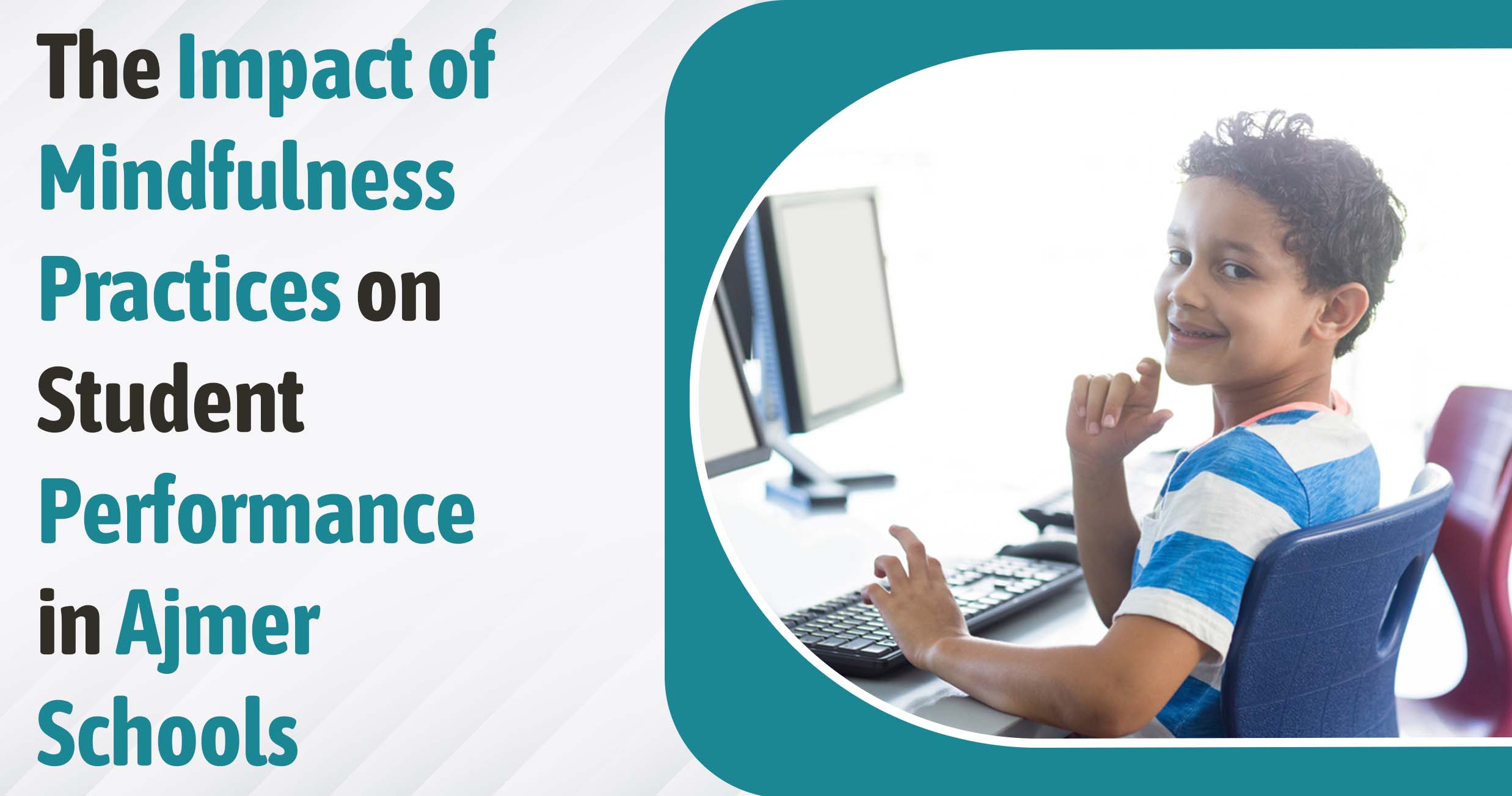
In Ajmer schools, mindfulness exercises change the curriculum by helping students become more focused and emotionally healthy. These methods support students in adequately managing their stress and living in the present. Teachers hope to foster emotional resilience and intellectual brilliance by incorporating mindfulness into the classroom. Mindfulness has become essential when students’ stress levels rise due to academic pressures. Here, let us investigate the effects of mindfulness on general education, mental health, and student performance in Ajmer schools.
Educators at top schools in Ajmer assist pupils in removing distractions and maintaining present-moment awareness. Mindfulness exercises improve focus and attention span in learners. Due to social pressures and the continual draw of digital devices, many students find focusing challenging. Young minds are trained to redirect their attention to their duties through mindfulness practices like meditation and deep breathing.
Student performance is significantly influenced by their emotional intelligence (EQ). Self-awareness, empathy, and emotional control are all fostered by mindfulness. Pupils who are aware of their feelings can better deal with difficulties.
Students who engage in mindfulness practices learn to think deeply before acting. This facilitates the settlement of disputes and the development of wholesome relationships. Peer antagonism and bullying have decreased in Ajmer schools that have adopted these strategies.
Additionally, there are more benefits of mindfulness than it seems. Emotional intelligence helps kids develop their leadership skills and prepares them for more future responsibility.
Students frequently struggle with stress and anxiety. Peer pressure, extracurricular activities, and academic pressures can all hurt mental health. By fostering calm and an optimistic outlook, mindfulness exercises help people feel less stressed.
Students who practice mindfulness report improved sleep habits and fewer anxiety symptoms. Mentors have seen that these kids handle difficulties more resiliently. These methods effortlessly connect mental health and education, laying the groundwork for long-term mental health.
Ajmer schools that use mindfulness programs find numerous benefits for instructors and students.
Among the main advantages of mindfulness are:
Implementing mindfulness in schools calls for a methodical strategy. To help kids with these activities, teachers must have the appropriate training. The best schools in Ajmer have started holding workshops to introduce teachers to mindfulness practices.
Successful school mindfulness programs incorporate activities such as body scans, guided meditation, and gratitude writing into everyday routines. Schools can begin with brief sessions during the morning assembly or the end-of-day reflections.
Supporting mindfulness at home is another responsibility of parents. Schools may engage parents in the cause by holding seminars and sharing information. Long-lasting outcomes are guaranteed when educators and families work together.
With impressive results, several Ajmer schools have already adopted mindfulness exercises. For example, following mindfulness training, students at Satguru International School reported feeling more confident and experiencing less stress related to exams.
Following these strategies, Satguru International School saw a notable decrease in disciplinary concerns. Students were more cooperative and sympathetic, according to teachers. These accounts demonstrate the significant influence that mindfulness has on both student achievement and school culture as a whole.
Establishments such as Satguru International School are setting the standard for successfully incorporating these approaches. Call today for more details!